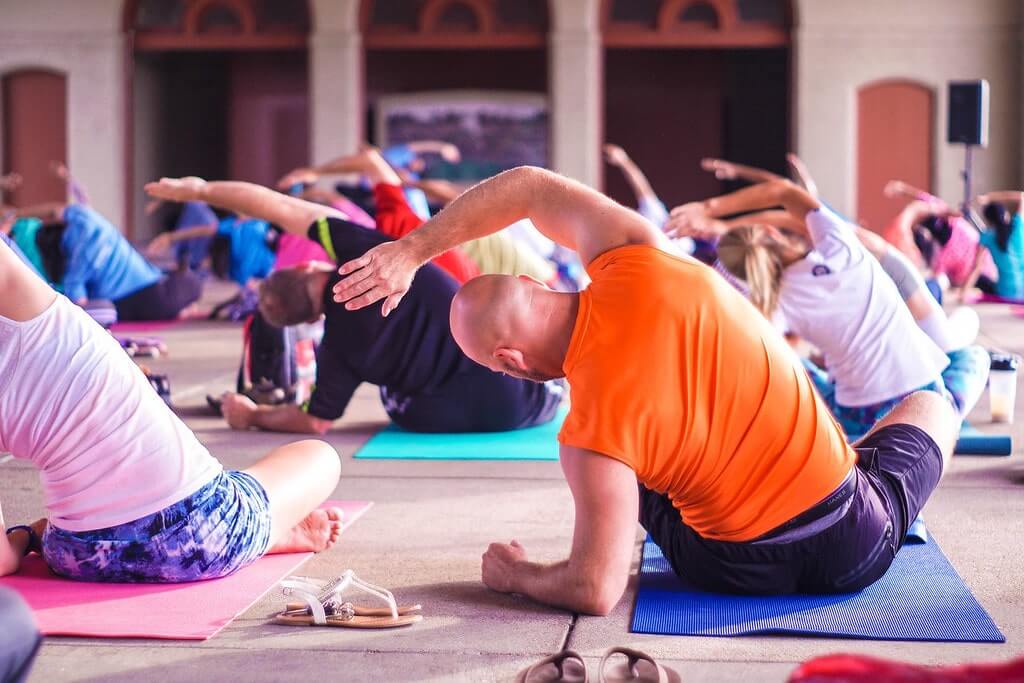Blog
New year's resolutions for a healthier you
4 January 2018

When January 1 rolls around you're given a fresh start, the opportunity to set goals, and put your health first for the next 365 days.
This New Year Cancer Council has done the hard work for you. We've trawled the evidence and listed the simple ways you can reduce your risk of cancer in 2018.
So start your year the right way by educating yourself on the known risk factors for cancer and making some clear New Year's resolutions to be a healthier you.
Resolution 1: The time is now!
Some of you will already know what lifestyle changes you need to make to reduce your risk of cancer - it's nothing new or miraculous. But taking some simple steps can significantly reduce your risk of developing cancer. Your steps to a healthier you include:
- stopping smoking
- protecting yourself when in the sun
- limiting your alcohol intake
- maintaining a healthy body weight
- keeping physically active
- choosing healthy food options.
It may surprise you to learn that at least a third of cancer cases could be prevented by concentrating on these six things.
To get you off on the right foot this January, give Cancer Council a call on 13 11 20 if you need help making your plans. Your GP can also help by giving you meal and exercise plans or a check-up, and by providing ongoing support to keep you on track for your health goals.
Resolution 2: Get to know yourself
When it comes to cancer, in most cases the earlier it is detected, the better. This is because finding cancer early can increase the likelihood of successful treatment.
Without fretting or worrying, make it another resolution to get to know the regular look and feel of your body and keep an eye out for unusual changes. Some things to look for include:
- any changes to your breasts or nipples, including changes to shape, colour or feel
- a lump in the neck, armpit or anywhere else on the body
- sores or ulcers that don't heal
- coughs or hoarseness that won't go away or coughing up blood
- changes in toilet habits that last more than two weeks
- changes to moles or skin spots, including changes in shape, size or colour, as well as any new moles or spots, or ones that bleed
- unusual discharge or bleeding
- unexplained weight loss.
These symptoms could be signs of other conditions and may not mean that you have cancer, but it is worth seeing your GP if you notice any of these changes.
Getting to know yourself also means understanding whether there is any increased risk of cancer in your family. If you think your family might be at increased risk, talk to your GP about your personal risk of getting cancer.
Resolution 3: Time to screen
Is there a screening test that you've been putting off? Have you received an invitation to screen in the mail but thrown it out? The New Year is the perfect time to set a date and screen - it just might save your life.
These programs are designed to pick up cancer in healthy individuals who do not have any signs or symptoms, so everyone who is eligible should take part. Here's what you need to know:
- The National Bowel Cancer Screening Program provides a free FOBT kit to all Australians aged 50, 55, 60, 64, 65, 70, 72 and 74. The simple test is sent to eligible individuals and can be done at home. By 2020, all Australians aged 50 to 74 will be included in the program.
- BreastScreen Australia invites women aged 50-74 to undergo free mammograms every two years. Women aged 40-49 and those aged over 74 can also be screened free of charge, but they will not receive invitation letters.
- The National Cervical Screening Program now involves a five-yearly HPV test, in place of the old two-yearly Pap smear test. Women will be sent an invitation to take part from the time they are 25.
So now you have it - your cancer resolution guide. This January, put your health first and put steps in place to learn about cancer and reduce your risk. Remember to keep it simple: focus on those six lifestyle choices, get to know your body, and participate in regular screening.
If you have questions, chat to your doctor or call Cancer Council on 13 11 20.
Tags
